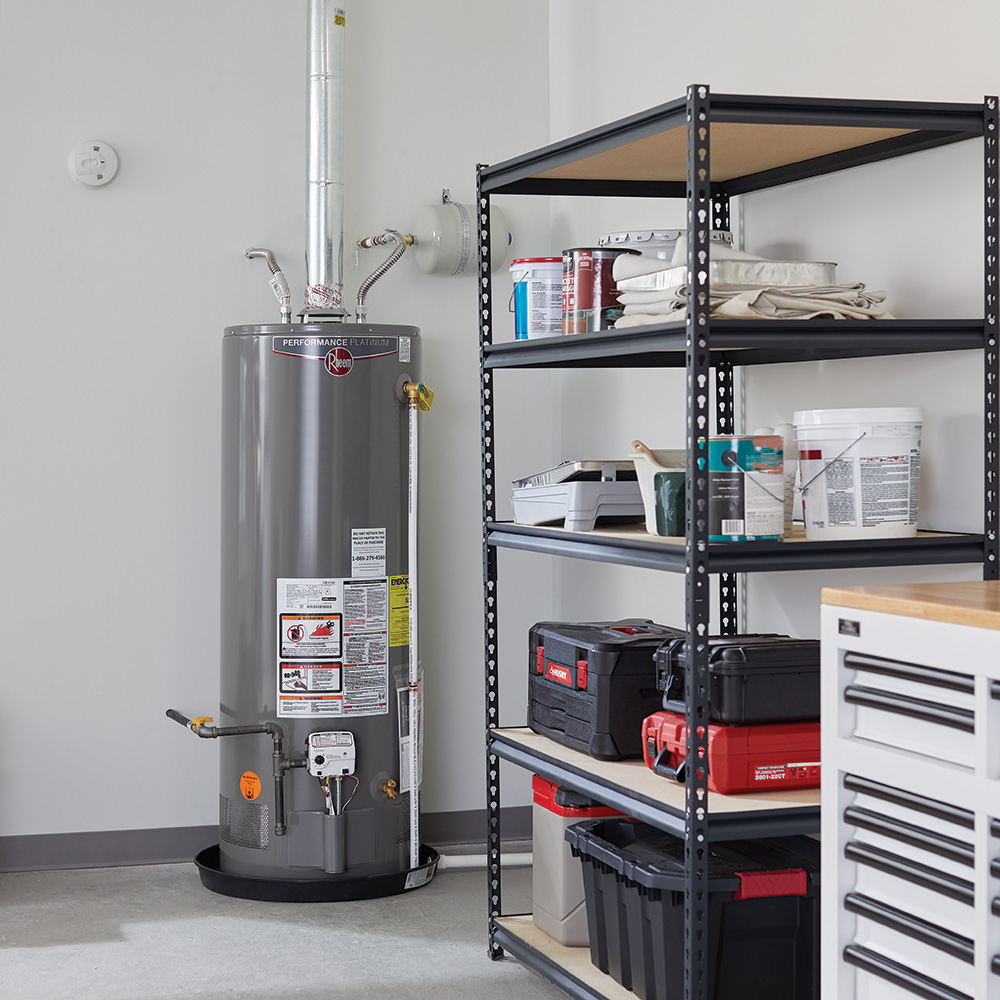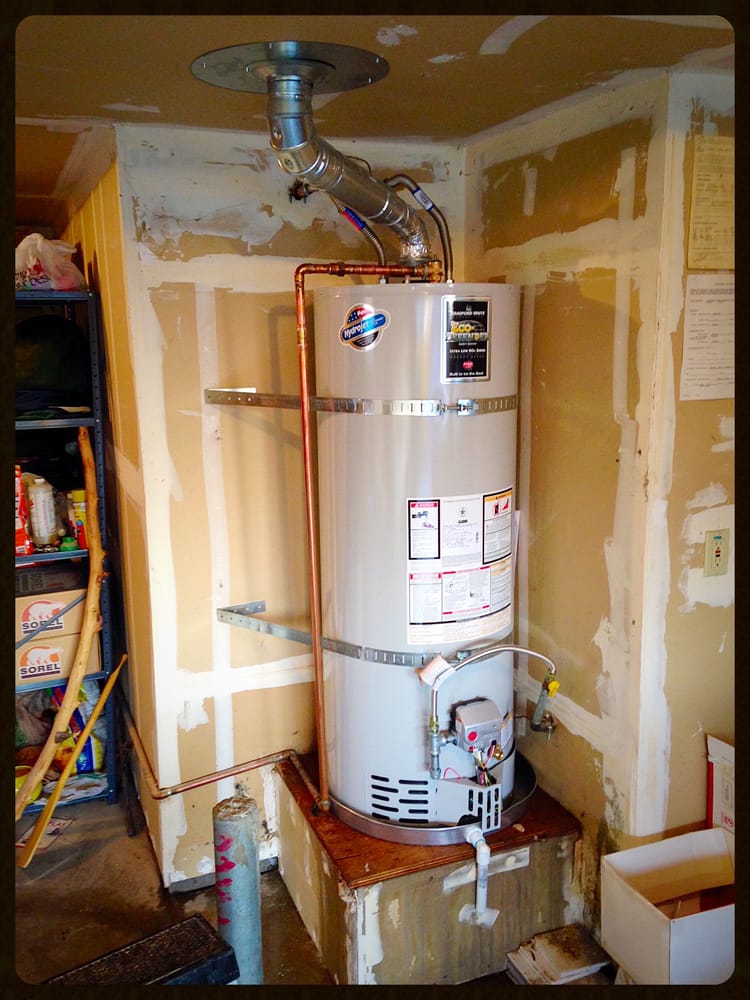Total Overview to Water HeaterInstallment and Replacement
Comprehending the ins and outs of water heating system installment and substitute is critical for property owners seeking to guarantee efficiency and reliability in their hot water supply. From selecting the appropriate kind and dimension to implementing a smooth installment procedure, a number of elements should be thought about to avoid typical pitfalls.
Types of Water Heating Units
When thinking about water heating system setup and substitute, it is crucial to recognize the different kinds of hot water heater offered in the marketplace. One of the most common kinds consist of storage tank water heaters, tankless water heating systems, heatpump hot water heater, and solar hot water heater.
Tank water heaters are typical systems that keep a certain volume of warm water, making them conveniently available when needed. They are generally less costly upfront but might sustain higher energy expenses gradually due to warmth loss. In comparison, tankless water heating units supply hot water as needed, removing the need for storage. They are energy reliable and can save space, yet their preliminary costs are usually higher.
Heatpump water heating units make use of electrical energy to move heat from the air or ground to warm water, supplying significant energy cost savings yet calling for more area and certain installment conditions. Finally, solar water heating units harness solar power to heat water, offering a green option with prospective long-lasting expense financial savings, although they frequently need a backup system for cloudy days.
Recognizing these choices makes sure educated choices concerning setup and replacement, satisfying particular requirements and preferences.
Choosing the Right Dimension
Choosing the suitable size for a water heating system is critical to make certain optimum performance and efficiency. An unit that is too tiny will certainly struggle to meet house needs, leading to inconsistent hot water schedule and boosted energy intake. On the other hand, an oversized water heating system can lead to unnecessary power waste and greater energy expenses.
To establish the ideal dimension, take into consideration the house's height hot water use. This can be determined based upon the number of occupants and their normal hot water requirements. For instance, a household of four may call for a water heating unit with a capacity of 50 to 80 gallons, relying on the usage patterns, such as simultaneous showers and laundry.
Furthermore, analyze the recovery rate, which gauges how swiftly a heater can renew warm water after it has been utilized. For tankless designs, emphasis on the flow price, measured in gallons per minute (GPM), to guarantee it fulfills the home's synchronised need.

Setup Process Review

Next, the old system must be separated and gotten rid of, taking treatment to comply with local codes and regulations regarding disposal. As soon as the old unit is out, the new water heating unit can be placed in location. This action includes connecting the supply of water lines, making sure that all fittings are safe and secure and leak-free.
After establishing water links, it's necessary to link the power supply, whether electrical or gas, complying with the producer's instructions diligently. When all links are made, the system ought to be loaded with water, and the power can be turned back on. Lastly, it is essential to inspect for leaks and make sure the hot water heater is functioning appropriately before finishing the setup procedure.
Typical Setup Blunders

An additional regular mistake is ignoring to follow neighborhood codes and policies. Falling short to follow these criteria can not just bring about security threats however might also lead to pricey fines or the requirement for pricey reinstallation. Furthermore, incorrect venting is a critical problem. Poor ventilation can trigger unsafe gas buildup, presenting significant health dangers.
Wrong plumbing connections are additionally a prevalent error. Falling short to secure connections or using the wrong type of installations can result in leaks and water damage. Ignoring the value of an appropriate drainpipe frying pan can result in significant water damages if leakages do happen. Poor insulation of pipelines can lead to heat loss, decreasing performance. By preventing these common installment errors, house owners can guarantee their water heating unit operates securely and efficiently, maximizing performance and long life.
Upkeep Tips for Longevity
Correct upkeep of discover this info here a hot water heater is necessary for its durability and ideal performance. Routine inspections and maintenance can avoid costly fixings and expand the device's lifespan. Begin by examining the temperature setup; it should commonly be set between 120 ° F and 140 ° F for optimal power efficiency and safety.
Every 6 months, purge the tank to get rid of sediment buildup, which can harm home heating effectiveness and create rust. To do this, shut off the heating system, connect a tube to the drain shutoff, and let the water run till it is clear.
Anode rods ought to be inspected annually and replaced when they are rusted. These rods assist stop storage tank corrosion by bring in corrosive components in the water.
Additionally, inspect the stress safety valve on a regular basis to guarantee it is functioning properly. This valve is vital for avoiding too much stress accumulation within the tank.
Finally, take into consideration scheduling an expert maintenance check every few years for complete examinations and maintenance. By adhering to these upkeep ideas, home owners can dramatically improve the performance, safety, and lifespan of their water heaters, making certain trustworthy hot water for years ahead.
Verdict
Finally, proper installment and maintenance of water heating systems are important for making certain efficiency and durability (drain cleaning). Picking the suitable kind and size, sticking to installation guidelines, and preventing usual mistakes substantially contribute to optimal performance. Normal maintenance checks and specialist servicing aid sustain functionality and stop costly fixings. By recognizing these essential elements, house owners can accomplish a reliable warm water supply while minimizing prospective problems connected to water heating system procedure.
Recognizing the details of water heating unit installment and substitute is crucial for property owners seeking to make sure effectiveness and dependability in their hot water supply.Storage tank water heating units are traditional systems that save a certain quantity of warm additional info water, making them conveniently offered when required. In contrast, tankless water heating systems give hot water on need, eliminating the demand for storage space. Choosing a water heating system that is either as well tiny or too large can lead to ineffectiveness, resulting in poor warm water supply or excessive power consumption.
By comprehending these vital aspects, homeowners can attain a reputable warm water supply while lessening learn the facts here now potential concerns associated to water heating unit procedure. pipe repair.